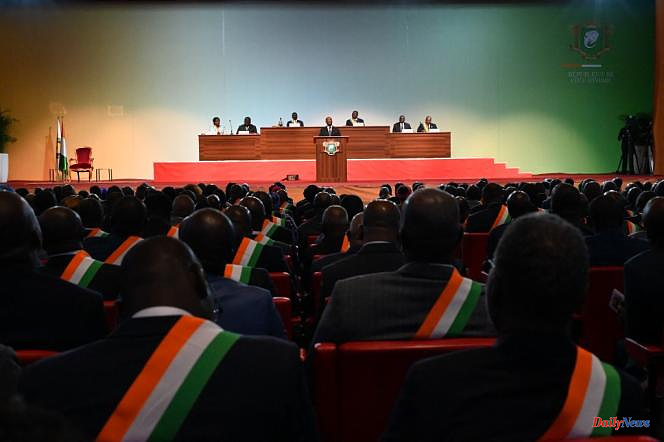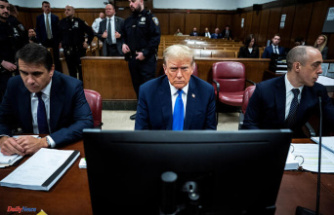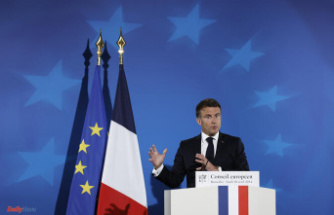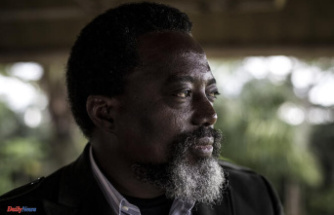He holds up the little Constitution book he swears he "always has in his pocket" in front of a crowd of senators and deputies, hastening to add with a laugh: "Don't be afraid! General burst of laughter. For this obligatory meeting of address to the nation in front of the Parliament meeting in Congress, Tuesday, April 25, in Abidjan, the Ivorian president has paid the luxury of a touch of humor. Because it was through the change in the fundamental law of 2016, amended four years later, that Alassane Ouattara was able to run for a controversial third term for the supreme magistracy in October 2020.
Two and a half years later, it is therefore in a climate that seems calmer that the Head of State took the time to shine his balance sheet and, after half an hour of satisfaction, to propose two constitutional revisions, "for the sake of efficiency". The first intended to make the parliamentary holidays coincide with those of the government in August; the second to organize legislative and senatorial elections after the presidential election.
Not enough to create emotion, especially after the upheavals of previous congresses. In 2020, the president announced that he would not run for president before reversing his decision, a few months later, after the death of his designated dolphin Amadou Gon Coulibaly; 2022 had seen the renewal of Patrick Achi as prime minister and the surprise appointment of Tiémoko Meyliet Koné, the former governor of the Central Bank of West African States (BCEAO), as vice-president of the Republic.
The opposition was also surprised that these two revision proposals took place on this occasion. “To say it during this Congress was not necessary, we could have worked on these texts in Parliament. But on the form, it allows the president to keep control and occupy the public space in order to show that he is able to assume continuity, stability, "judge Michel Gbagbo, PPA-CI deputy for Yopougon, and son of Laurent Gbagbo.
"Campaign before time"
The president's speech was therefore above all an opportunity to outline his government's successes mid-term, such as the release of 49 soldiers detained for nearly six months in Mali, the repatriation of Ivorians fleeing the wave of racism in Tunisia and the war of the generals in Sudan, but also the strong Ivorian growth established at 6.7% in 2022 and estimated at 7.2% for the year 2023, or even progress in terms of food security, electrification and infrastructure. In the register of projects, Alassane Ouattara announced an investment of 365 billion CFA francs over the year 2023 (556.4 million euros) in a vast "Marshall Plan" for youth for two years, promising to disburse 1 billion CFA francs per day for the employment and professional reintegration of 1.5 million young people.
The Ivorian head of state did not spare either to congratulate his ministers and his vice-president, present in the room, four months before the municipal and regional elections. "It was an exercise in self-satisfaction, but also a pretext to award prizes to his ministers who are candidates for the next local elections, a way of campaigning ahead of time," said Jean Gervais Tchéidé, PPA-CI MP for Bloléquin (west).
The ruling party, the Rally of Houphouëtists for Democracy and Peace (RHDP), did not fail to welcome this speech, stressing that the harmonization of the electoral calendar will allow, beyond having a more solid majority in the Parliament, to limit the political tensions that regularly accompany the various elections in the country. The municipal elections of 2018 were marred by violence in certain localities, and those of this year arouse the concern of the authorities and the opposition.
"This violence is not linked to the electoral calendar," says political scientist Geoffroy-Julien Kouao. They are due to the poor organization of the elections and the attempts to exclude certain candidates. For the 2025 presidential election, for example, the question of Laurent Gbagbo's eligibility should be resolved now. His possible ineligibility could be a source of violence. The ex-president was pardoned by his rival in August 2022, more than ten years after the bloody post-election crisis of 2010-2011, but not granted amnesty. Laurent Gbagbo, who returned to Côte d'Ivoire for almost two years, cannot therefore stand for any ballot.












